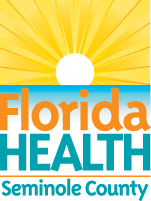It's a New Day in Public Health.
The Florida Department of Health works to protect, promote, and improve the health of all people in Florida through integrated state, county, and community efforts.
Prepare for Hurricane Season
June 18, 2015
“In the event of a disaster, the health department is prepared and ready to assist the community. Individuals and families are encouraged to be prepared and have a disaster supply kit ready before the emergency hits. Learn ahead of time if you need to evacuate to a shelter and what to take,” said Dr. Swannie Jett, Health Officer for the Florida Department of Health in Seminole County.
DOH-Seminole along with Seminole County Emergency Management and other community partners are conducting a Persons with Special Needs and Pet-Friendly Shelter Functional Exercise on Friday, June 19 in order to continue exercising local plans and be prepared before any emergency touches the county.
During this time of year, all Floridians must heighten their awareness and personal responsibility to properly prepare for hurricane season. If an individual with special medical needs determines that they are unable to evacuate the disaster area and must seek shelter they should log on to Prepare Seminole or call the Seminole County Office of Emergency Management at 407-665-5102
Before a disaster remember to:
Review your family disaster plan, check supplies and expiration dates.
Have family meetings a couple of times each year to discuss how the family is prepared to remain safe during a disaster.
Predetermine your shelter in place or evacuate criteria. If you must evacuate, have a predetermined meeting place so that no one goes back into harm’s way to search for someone who is safe.
Encourage all family members to express their concerns about what might happen and what the plans are to deal with the various situations.
Stay informed through trusted local and state authorities.
A disaster supply kit for your home or an evacuation plan should include items in six basic areas: (1) water, (2) food, (3) first aid supplies and medications, (4) clothing and bedding, (5) tools and emergency supplies, and (6) important family documents.
You will need a supply kit if you are confined to your home. A supply kit is also valuable if you evacuate to a place other than a well-stocked shelter or if you’re unsure of the shelter’s supplies. For more information on hurricane preparedness and what is suggested for your kit, visit www.seminolecohealth.com





Connect with DOH